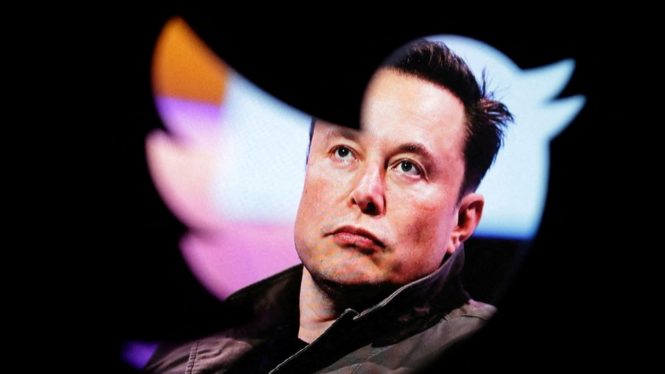Twitter has withdrawn from the European Union’s Code of Practice on online disinformation, per the bloc’s internal market commissioner, Thierry Breton.
In a tweet last night — which confirmed earlier reports of Twitter’s impending exit from the EU Code — Breton issued the social media platform with a blunt warning: Telling Twitter it cannot hide from incoming legal liability in this area.
“Twitter leaves EU voluntary Code of Practice against disinformation. But obligations remain. You can run but you can’t hide,” Breton wrote — a reference to obligations the platform is legally required to comply with as a so-called very large online platform (VLOP) under the EU’s Digital Services Act (DSA).
“Beyond voluntary commitments, fighting disinformation will be legal obligation under #DSA as of August 25. Our teams will be ready for enforcement.”
The pan-EU law, which entered into force back in November, requires VLOPs like Twitter to assess and mitigate systemic risks to civic discourse and electoral processes, such as disinformation.
The deadline for VLOPs’ compliance with obligations in the DSA is three months from now.
A request for comment emailed to Twitter’s press office returned an automated reply containing a poop emoji.
Previous management at Twitter signed the platform up to the voluntary EU Code on Disinformation back in 2018. But Twitter’s current owner, billionaire Elon Musk, looks intent on picking a fight with the EU over speech moderation — belying early remarks he made to Breton in person when Musk had claimed to be on board with the bloc’s digital rulebook.
This is an expensive fight for Musk to pick. Breaches of the DSA can attract penalties of up to 6% of global annual turnover.
The Commission has also warned that serious, repeated non-compliance could lead it to block access to a service — which dangles the prospect of Twitter losing access to a region with some 440 million consumers.
The original EU Disinformation Code had committed Twitter to taking steps to combat the spread of false information on its service by targeting associated ad revenue, tacking bots and fake accounts, providing consumers with tools to report disinformation and empowering researchers to study.
In June 2022, the Commission unveiled a beefed-up version and announced a transparency center to monitor adherence to it.
Importantly it also announced that sticking to the Code would count towards signatories’ DSA compliance. So Twitter’s deliberate pulling out now — with just three months til the law bites — signals that it’s flipping the bird at the bloc’s wider digital services rulebook.
Before Musk came along, it’s fair to say Twitter never exactly excelled at quashing bot networks or otherwise purging toxic nonsense. However, since he took up ownership of the platform last fall, after his $44 billion purchase closed, there has been a clear and calculated backsliding — with obviously harmful steps taken by Musk that drive the platform in the opposite direction. Such as drastic cuts to moderation staff and a massive hike in the price Twitter charges external researchers to access to data via its API, thereby impeding the ability of outsiders to study issues like disinformation — to name two of myriad acts of operational vandalism by Musk which have had the effect of destabilizing veracity and encouraging trolls and chaos agents to run amok on Twitter.
The EU fired an early warning shot at Musk, back in November, when it said publicly Twitter had “huge work” ahead of it if it was going to avoid breaching the DSA, including specifically name-checking areas like disinformation. That was followed, in February, with another warning that Twitter was failing to live up to its reporting commitments under the Disinformation Code. So it was probably only a matter of time before Musk formally pulled the plug on the only bit he technically can.
But while the Code remains voluntary, as noted above, the EU has attached it to wider DSA compliance — as defacto guidance for meeting the latter’s hard obligations for VLOPs to tackle disinformation. So Twitter’s wilful exit cranks up its regulatory risk — essentially inviting the Commission to sanction blatant rule flouting or risk the law become a flop.
As we reported last year, this collision course was always a strong possibility with Musk taking over Twitter. It’s increasingly looking like an inevitability — one that’s being driven by the billionaire’s goal of advancing a far right political ideology which demands he give succour to disinformation in order that the seeds of anti-democratic conspiracy theories may fly. (As Charlie Warzel put it in a recent Atlantic article: “[Twitter] has unquestionably transformed under [Musk’s] leadership into an alternative social-media platform — one that offers a haven to far-right influencers and advances the interests, prejudices, and conspiracy theories of the right wing of American politics.”)
Musk’s transformation of Twitter into a far right stan site can certainly fly in the US; under constitutional protections for free speech the worst he can do is ruffle a few feathers and drive progression users off his platform (so, basically, hit himself in the pocket-book — albeit, we know he’s got wealth to burn).
But Musk’s trajectory of promotional encouragement for conspiracy bs puts him on a direct collision course with regulators in the EU who have set their stall against blatant anti-democratic manipulation. So strap in for what looks set to be an expensive fight.
Elon Musk takes Twitter out of the EU’s Disinformation Code of Practice by Natasha Lomas originally published on TechCrunch
https://techcrunch.com/2023/05/27/elon-musk-twitter-eu-disinformation-code/


